Benz-Micro MC20E2 L and Ebony L Cartridges
| Benz-Micro MC20E2 L and Ebony L Cartridges |
| Excellence from Bottom to Top |
|
|
|
September 2007 |
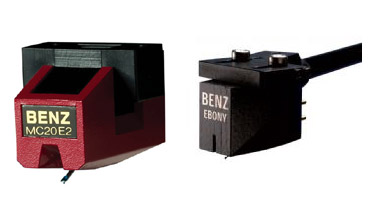
It had been a while since I had made a serious attempt to maximize the performance of my vinyl playback system. After all, it’d become a digital world and my attention had been focused on making the most of that reality. And, truth be told, I had attained a very satisfactory level of musical performance from the digital sources in my two systems.
I had seen the talk in the audiophile forums with the die-hard vinylphiles insisting that even a basic $500 turntable/arm/cartridge setup will “trounce CD.” I think claims like those are the reason why many curious audiophiles take the plunge into the world of analog. Some seem to be satisfied with their analog experiment, while others are disappointed. My question is: “What are the reasons for this apparent disparity?”
It seems to boil down to the individual audiophile’s listening biases as well as the capabilities of their respective systems to expose both the strengths and weaknesses of each format. For folks that enjoy a smoother, more tube-like presentation, even inexpensive analog can offer a rich, smooth midrange that kills on vocals and acoustic instruments. And if that is your focus, you’re set.
But others, who are used to the bass extension, dynamics, low noise, and clarity that CDs offer, are less convinced and less apt to trade these qualities for the slightly kinder and gentler midrange of analog.
A while back, my reference phono cartridge was a Benz-Micro Ruby 2. I very much enjoyed the sound of that fine cartridge and recall a rather warm sounding musical presentation with big, kind-of-fat, bass, smooth lush mids, and soft, delicate, but slightly subdued highs. I enjoyed my time with the Ruby 2 quite a bit.
Based on numerous very flattering reviews, my next cartridge was the Shelter 501 II, and I had a love/hate relationship with that one. It offered very good dynamic contrasts, tight bass, and a very focused sounding midrange with very good resolution—but somewhat bright-sounding highs. While others have praised it, I could never get comfortable with the Shelter. For me, its balance was a bit too thin and a little too bright—more analytical than musical to my ears.
After finally giving up on the Shelter, I contacted Garth Leerer, head honcho at Musical Surroundings to see which Benz-Micro cartridges might be available for evaluation. Garth offered the new MC20E2 Low (new low-output version of the MC20E) which was Benz’s entry-level cartridge. He also said that a new low-output version of the Benz Ebony cartridge would soon be available. I had heard some good things about the inexpensive MC20E2-L from electronics designer Michael Yee and so I happily agreed to evaluate the cartridges. I also wish to acknowledge and thank Michael Yee for lending me his newly designed, Musical Surroundings Nova Phonomena battery-powered phono preamp. It’s a very musical and revealing piece of gear and its many gain and cartridge-loading options made it ideal for fine-tuning the sound of the Ebony L.
Two different turntable systems were used for this evaluation. The Benz MC20E2-L was up first. I installed the cartridge in a modified Rega RB-250 arm that was rewired with Incognito wire and was equipped with the Michell Tecnoweight and VTA adjuster. It turned out to be a good match for the Rega arm, but due to its low compliance and light weight, Garth recommended that I use the headshell weight that’s supplied with the cartridge. And I can verify that the cartridge did indeed sound better with this weight than without it. The cartridge seemed to track very well at just over 2 grams.
The MC20E2-L uses an aluminum cantilever with an elliptical diamond stylus and its output is rated at 0.5mV at 3.54cm/second. The recommended load range is 400 to 47k-ohms. Specified tracking force is 2 to 2.5 grams.
In this system, I used the original Musical Surroundings Phonomena phono stage. I experimented with a couple of different load settings, but achieved the best results at 660 ohms. The turntable was the Michell Tecnodec, which was set on a VPI MDF isolation base with AudioQuest Sorbothane footers between the base and my equipment rack.
Entry Level Sound—NOT!!!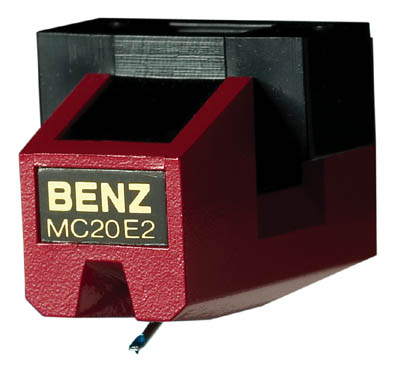 Right out of the gate, I knew I was going to like the MC20E2-L, because the sound is extremely fast, dynamic, and open. In addition the soundstage is very wide and portrayed a good sense of depth. Not only that, but the images are very well focused. I must admit I was VERY surprised that a sub-$200 cartridge could provide all these qualities at such a high level.
Right out of the gate, I knew I was going to like the MC20E2-L, because the sound is extremely fast, dynamic, and open. In addition the soundstage is very wide and portrayed a good sense of depth. Not only that, but the images are very well focused. I must admit I was VERY surprised that a sub-$200 cartridge could provide all these qualities at such a high level.
My one reservation with the MC20E2-L was that it sounds a bit too hot in the treble. I did a couple of things to tame it (in addition to the loading). First, I tried a short set of copper-based interconnects (instead of silver) between the phono stage and preamplifier, which definitely helped and made the presentation more musical. Then I simply used my equalizer to cut the response by 1dB at both 8kHz and 16kHz. This too, made an improvement for the better, resulting in a balance that was still just a little bright to my ears. On many recordings, the extra brightness was not that noticeable, though on other recordings there was no question that the balance was still just a tad hot.
The MC20E2-L performs very well with both female and male vocals. Artists such as Tracy Chapman, Karla Bonoff, and Johnny Cash sound natural, with perhaps just a hint of brightness here and there on certain notes. For the most part the vocals are very plausible and natural.
One impressive trick that the MC20E2-L was able to pull off was portraying just the right amount of chestiness to Johnny Cash’s voice on “Down There By the Train,” (American Recordings 9 45520-1). This seems to be a tough song for many cartridges to get right. Even the much more expensive Benz Ruby 2 seemed to add a bit of extra warmth to Cash’s voice.
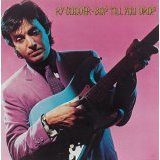 The MC20E2-L, however, proved to be very articulate in the bass, no matter what material I threw at it. It could distinguish the signature of different types of drums, and tympani came across distinctly and palpably with very good pitch definition. The Benz also did very well reproducing the growl of the electric bass on Ry Cooder’s “The Very Thing That Makes You Rich,” from Bop Till You Drop(Warner Bros. BSK 3358). For that matter it was no slouch with the poignant twang of the rhythm guitar on the same album. The MC20E2-L captured both the transient snap and the musical sweetness of the notes.
The MC20E2-L, however, proved to be very articulate in the bass, no matter what material I threw at it. It could distinguish the signature of different types of drums, and tympani came across distinctly and palpably with very good pitch definition. The Benz also did very well reproducing the growl of the electric bass on Ry Cooder’s “The Very Thing That Makes You Rich,” from Bop Till You Drop(Warner Bros. BSK 3358). For that matter it was no slouch with the poignant twang of the rhythm guitar on the same album. The MC20E2-L captured both the transient snap and the musical sweetness of the notes.
One day, I was having fun playing through some pop releases when I decided to put on something really challenging. 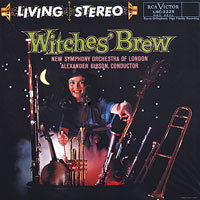 So I broke out my copy of Witches’ Brew (RCA LSC 2225) and let Danse Macabre do its thing. The initial bass rumble from the subway near London’s Kingsway Hall was easily discernible. But what freaked me out about this recording was the sheer size and scope of the soundstage, combined with the head-splitting dynamic impact of the crescendos, especially in the finale. With the NuForce 9SE V2 amps driving the VMPS RM30 speakers, I tell you the speed and visceral impact of that final massed string “sforzando” leading to the climactic crash of cymbals and tympani was nothing short of mind blowing.
So I broke out my copy of Witches’ Brew (RCA LSC 2225) and let Danse Macabre do its thing. The initial bass rumble from the subway near London’s Kingsway Hall was easily discernible. But what freaked me out about this recording was the sheer size and scope of the soundstage, combined with the head-splitting dynamic impact of the crescendos, especially in the finale. With the NuForce 9SE V2 amps driving the VMPS RM30 speakers, I tell you the speed and visceral impact of that final massed string “sforzando” leading to the climactic crash of cymbals and tympani was nothing short of mind blowing.
Caveats
What I should mention, is that the MC20E2-L does a commendable job of reproducing vocals, piano, and stringed instruments in general. But, it seems that getting the brass instruments to sound correct, like on the aforementioned Danse Macabre, is more of a challenge. My feeling is that instruments like trumpet and trombone, while easily recognizable, are not quite tonally accurate. Instead, they exhibit an extra component of brightness that skews their timber somewhat.
My number 2 complaint is the aforementioned tendency toward brightness. Other Benz cartridges that I’ve tried like the ACE and the Ruby 2, although admittedly much more expensive, have better balanced high frequency reproduction.
Other than those couple of things, make no mistake, there is no way you’d ever guess that the MC20E2-L is an entry-level product.
Enter the Ebony
I installed the Benz-Micro Ebony L on the Wilson Benesch Act 0.5 arm on my Michell Orbe SE turntable with self-modified fixed-suspension. I had previously found that doing away with the Orbe’s stock spring suspension and finding a way to effectively damp the Orbe’s platter bearing worked wonders to improve its precision, inner detailing, and image focus.
The Ebony L uses a machined and vented African Ebony wood body. It features a nude, Fritz Geiger S line-contact diamond, mirror polished and bonded to a 5.5mm solid boron cantilever. With an output of only 0.26mV at 3.54cm per second, the Ebony L is the second lowest output Ebony Series cartridge that Benz offers (the lowest being the Ebony TR @0.1mV). Internal impedance is a very low 3.5 ohms and the cartridge weighs 9.6 grams. My personal estimate is that loads ranging from 50 to 600 ohms will serve the Ebony L best.
After experimenting with different gain and load settings on the battery-powered Nova Phonomena, I found that a load of 243 ohms worked very well, along with 57 dB of gain. But realize that the load setting is listener dependent, while the gain setting is system dependent. Many systems will require 60 or more decibels of gain to attain adequate listening levels. As it turned out, I achieved the best tracking at about 2.2 grams, which is at the high end of the recommended range and can vary as the cartridge breaks in.
My speakers for this experiment would be the Silverline Audio Preludes, with Silverline’s new Minuet speakers stacked on top in a special, configuration (invented by yours truly) which I refer to as my “Silverline Slender Stack.” This potent combo sounds considerably better than either speaker by itself. Sorry, I can’t elaborate on the details here.
One additional tweak I used to fine-tune the system was to plug my turntable’s power supply and the phono stage into PS Audio’s new Duet AC conditioner. This resulted in perceptibly better high-frequency performance and a more natural balance.

The Enchantment of Ebony
After putting some break-in hours on the Ebony, over a period of a few weeks, I got around to doing some serious listening. I remember playing Ry Cooder’s Bop Till You Drop (Warner Bros. BSK 3358) and being surprised at how non-offensive and relaxing the experience was. It kind of made me want to say “ahhh,” and sucked me into listening to the twang and timbre of the guitars, and the grunt of the bass line. The sound was focused and clear, yet very detailed and musical—all at the same time. I was impressed with the neutral balance of the cartridge and how well it managed to uncover small musical nuances and details that went MIA with my previous Shelter 501 Mk2 cartridge.
Further, I really like the bass reproduction of the Ebony. It is not the most bombastic presentation I have heard, but I believe it is the most neutrally balanced and the most articulate. I could easily hear differences in tonality between different drums, and not only could I follow bass lines, I could distinguish more of the tonal essence of each note. This was not the case with Benz-Micro’s Ruby 2 cartridge (used previously on the same turntable/arm) which displayed bigger, fatter bass that was not as deft, and tended to cloud midrange details to a degree.
Best of all, the Ebony L is a fantastic cartridge for those who appreciate the sound of vocals and live acoustic instruments.
I went to my record closet and pulled out Stravinsky’s Igor Stravinsky Conducts 1961 (Columbia MS62720). Listening to L’ Histoire du Soldat, I was taken by the authentic timbre and immediacy of the trumpet and trombone. The sound was powerful and moving, with the tympani providing taut, pounding punctuation. At one point there was a cymbal strike that shimmered and seemed to light up the space of the concert hall and then decay naturally. It had me convinced.
The Ebony L’s high frequency reproduction sounds very natural and “right” to my ears. It definitely does not sound peaky the way many lesser moving coils do. I would judge the overall frequency balance and linearity of the Ebony-L to be very close to ideal. I believe this is what allows it to sound so transparent.
Another thing that caught my attention was that the interplay of the various instruments was more apparent and easy to follow. The sound was thus, more engaging. For sooth, the Ebony is better at getting the basics right than any other cartridge in my experience.
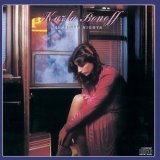 And of course vocals are portrayed exceptionally well. Spinning Karla Bonoff’sRestless Nights (Columbia JC 35799), proved to be a delightful treat. Her heartfelt harmony with James Taylor on their version of “The River is Wide,” was just beautifully rendered. Also, it was touching to hear Johnny and Roseanne Cash perform their cover of, “Bridge Over Troubled Water,” who’s title could be a metaphor for the many notes Johnny didn’t hit exactly right on the nose. (From Johnny Cash American IV: The Man Comes Around). The Ebony let me hear those little baubles with unwavering fidelity.
And of course vocals are portrayed exceptionally well. Spinning Karla Bonoff’sRestless Nights (Columbia JC 35799), proved to be a delightful treat. Her heartfelt harmony with James Taylor on their version of “The River is Wide,” was just beautifully rendered. Also, it was touching to hear Johnny and Roseanne Cash perform their cover of, “Bridge Over Troubled Water,” who’s title could be a metaphor for the many notes Johnny didn’t hit exactly right on the nose. (From Johnny Cash American IV: The Man Comes Around). The Ebony let me hear those little baubles with unwavering fidelity.
Caveats
Initially, there were two parameters I noticed about the Ebony L that had room for improvement. The first issue involves a slight reduction in macro-dynamic capability. This simply means that on loud passages and orchestral climaxes the Ebony sounds a bit tame compared to some other cartridges I’ve tried.
My second observation was a tendency for the Ebony to sound a little two-dimensional on some recordings, exhibiting a bit less front to back depth than some other cartridges I’ve used.
However, in my most recent listening sessions with the Ebony L, both of these areas have improved, leading me to believe that my initial impressions were mainly due to insufficient break-in time.
Indeed, I heard very admirable layering and depth in the soundstage of several recordings I played recently. And if the Ebony L is mildly polite, I believe it is because the cartridge is so focused and precise. Other cartridges may not be as controlled and articulate and may exhibit a tendency for overshoot and ringing on dynamic passages, which could be perceived as a little more “dynamic bloom.” The more I listen, the more I like the Ebony’s superior sense of focus and control.
Summing up
One of my biggest shocks in this evaluation was how much performance and precision Benz-Micro has managed to wring from its MC20E2-L. If truth be told, I could make a strong case for preferring it to my previous Shelter 50l II, and that’s admitting quite a bit.
Its most serious shortcoming is its brightness on some recordings, but in view of its very low price, for many, this will be an acceptable trade off—and one that can be minimized by a little careful fine tuning. I think everyone who hears the MC20E2-L will be impressed by its transient speed, its clarity, and its striking dynamics. In those aspects, it sounds comparable to many higher-priced models.
From the Ebony L, I was expecting good things, and it delivered in spades. The Ebony L is the most natural sounding, resolving, and transparent cartridge I’ve ever had the pleasure of evaluating. For those who love classical and acoustic music, the Ebony L delivers the sound of vocals and acoustic instruments with a naturalness and ease that I have rarely experienced—except in a live venue.
Referring back to my previously mentioned analog vs. digital disparity, the Ebony L makes a very convincing case for getting back into the natural-sounding world of vinyl. And for those considering taking the analog plunge for the first time, the Ebony L is very capable of exposing the many strengths and charms of this venerable, time-proven musical sojourn.
Both the over-achieving MC20E2-L and the majestic Ebony L are highly recommended.

_________________
Importer
Musical Surroundings
5662 Shattuck Ave.
Oakland, CA 94609
Phone: 510.547.5006
Fax: 510.547.5009
Web: http://www.musicalsurroundings.com/benz.html
Benz-Micro MC20E2-L
Price: $199.99
Benz-Micro Ebony-L
Price: $3,000.00
![]()
Don’t forget to bookmark us! (CTRL-SHFT-D)
Stereo Times Masthead
Publisher/Founder
Clement Perry
Editor
Dave Thomas
Senior Editors
Frank Alles, Mike Girardi, Key Kim, Russell Lichter, Terry London, Moreno Mitchell, Paul Szabady, Bill Wells, Mike Wright, Stephen Yan, and Rob Dockery
Current Contributors
David Abramson, Tim Barrall, Dave Allison, Ron Cook, Lewis Dardick, Dan Secula, Don Shaulis, Greg Simmons, Eric Teh, Greg Voth, Richard Willie, Ed Van Winkle, and Rob Dockery
Music Reviewers:
Carlos Sanchez, John Jonczyk, John Sprung and Russell Lichter
Site Management Clement Perry
Ad Designer: Martin Perry


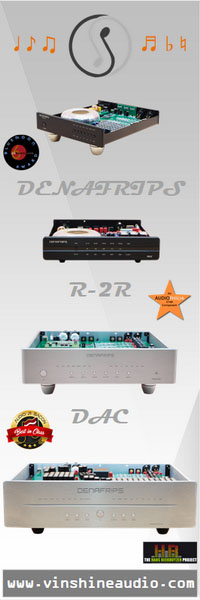
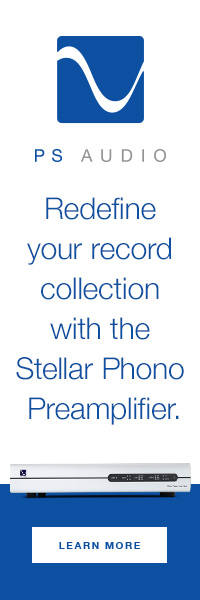
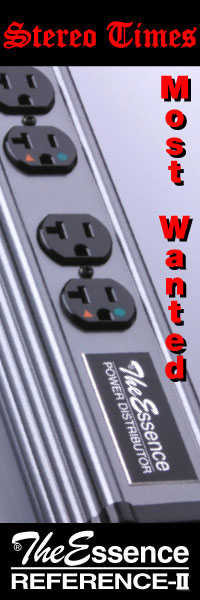
Be the first to comment on: Benz-Micro MC20E2 L and Ebony L Cartridges